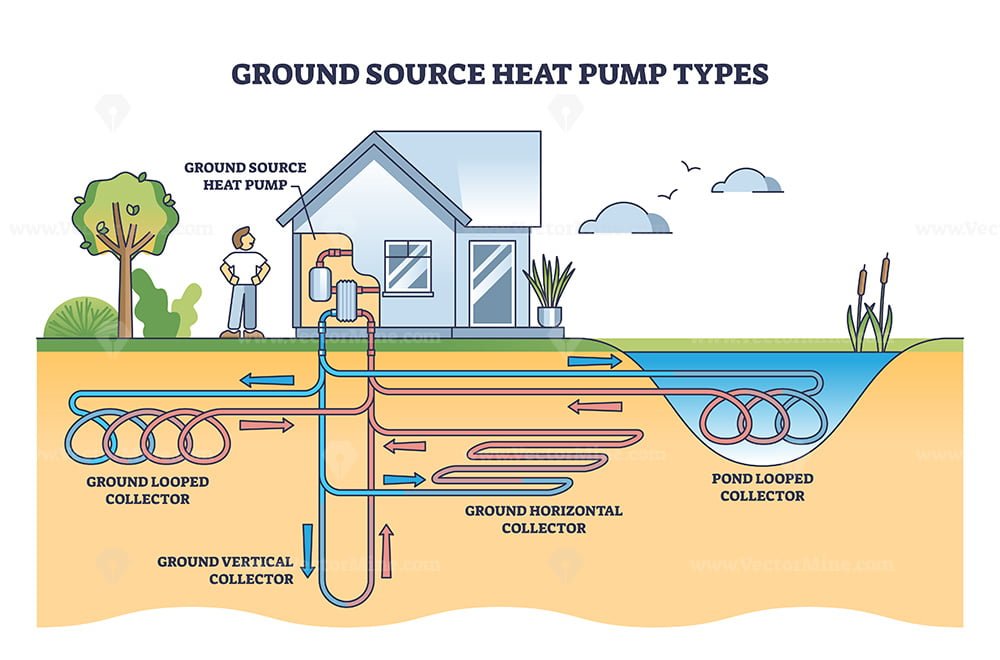A heat pump is a device that uses electricity to transfer heat from one location to another, providing both heating and cooling for a home. It works by moving heat from the air or ground outside to the indoor space, making it a more energy-efficient and environmentally friendly alternative to traditional heating and cooling systems.
How Heat Pumps Work
Heat pumps use a refrigerant that circulates between the indoor fan coil (air handler) unit and the outdoor compressor to transfer heat. In cooling mode, the heat pump absorbs heat from the indoor air and releases it outdoors. In heating mode, it absorbs heat from the ground or outside air and releases it indoors[1][2][3].
Types of Heat Pumps
There are two main types of heat pumps:
- Air-Source Heat Pumps: These transfer heat between indoor air and outdoor air. They are more popular for residential heating and cooling due to their lower installation costs[1][2][5].

- Ground-Source Heat Pumps (Geothermal Heat Pumps): These transfer heat between indoor air and the ground outside. They are more efficient and have lower operating costs due to the consistent ground temperature throughout the year, but are more expensive to install[1][2].
How Heat Pumps Cool and Heat
Heat pumps do not create heat; they redistribute heat from the air or ground. In cooling mode, they absorb heat from the indoor air and release it outdoors. In heating mode, they absorb heat from the ground or outside air and release it indoors[1][2][4].
Hybrid Heat Pumps
Hybrid heat pumps integrate a heat pump with a traditional gas furnace or boiler heating system. They monitor the temperature outside and automatically choose the most energy-efficient option to keep the home consistently warm and water hot[2].
Advantages
Heat pumps offer several benefits:
- Energy Efficiency: They transfer heat rather than generating it, making them more efficient than traditional heating systems.
- Environmental Friendliness: Heat pumps do not burn fossil fuels, reducing greenhouse gas emissions and environmental impact.
- Cost-Effectiveness: They can save homeowners money on energy bills, especially in moderate climates where they can be used year-round[1][2][3][5].
Challenges and Limitations
- Cold Weather Performance: Heat pumps can struggle in extremely cold temperatures, requiring backup electric resistance heaters to maintain indoor temperatures.
- Installation Costs: Ground-source heat pumps are more expensive to install due to the need for underground pipes and equipment[1][2].
Citations:
[1] https://www.carrier.com/residential/en/us/products/heat-pumps/what-is-a-heat-pump-how-does-it-work/ [2] https://www.nationalgrid.com/stories/energy-explained/how-do-heat-pumps-work [3] https://home.howstuffworks.com/home-improvement/heating-and-cooling/heat-pump.htm [4] https://www.serviceexperts.com/blog/how-does-a-heat-pump-cool-my-home/ [5] https://www.energy.gov/energysaver/heat-pump-systems

Comments
Post a Comment